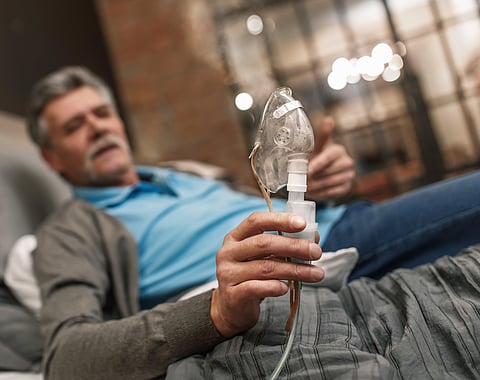MONDAY, March 4, 2024 (HealthDay News) -- Sleep apnea could have detrimental effects on the brain, causing memory or thinking problems, a new study suggests.
People suffering from sleep apnea are about 50% more likely to also report having memory or thinking problems, compared to those without sleep apnea, researchers say.
“These findings highlight the importance of early screening for sleep apnea,” said researcher Dr. Dominique Low, a clinical fellow with the Boston Medical Center.
Sleep apnea occurs when people stop and restart breathing repeatedly as they sleep. Symptoms include snoring, gasping and breathing pauses.
People with sleep apnea often suffer from unexplained fatigue and mood swings, because their breathing interruptions continually wake them as their blood oxygen levels dip. They are unable to settle into a deep and nourishing sleep.
For this study, researchers surveyed nearly 4,300 people about their sleep quality, memory and brain function.
About a quarter of the participants reported symptoms of sleep apnea.
Of those with sleep apnea, a third (33%) reported memory or thinking problems, compared to just 20% of people without sleep apnea.
Low plans to present her study at the American Academy of Neurology annual meeting, which takes place in April in Denver. Research presented at medical meetings should be considered preliminary until published in a peer-reviewed journal.
Low said the findings point to the importance of taking sleep apnea seriously.
“Effective treatments like continuous positive airway pressure (CPAP) machines are readily available,” Low said in a meeting news release. “Quality sleep, along with eating a healthy diet, regular exercise, social engagement and cognitive stimulation, may ultimately reduce a person’s risk of thinking and memory problems, improving their quality of life.”
More information
Johns Hopkins Medicine has more about the health effects of sleep apnea.
SOURCE: American Academy of Neurology, news release, March 3, 2024


